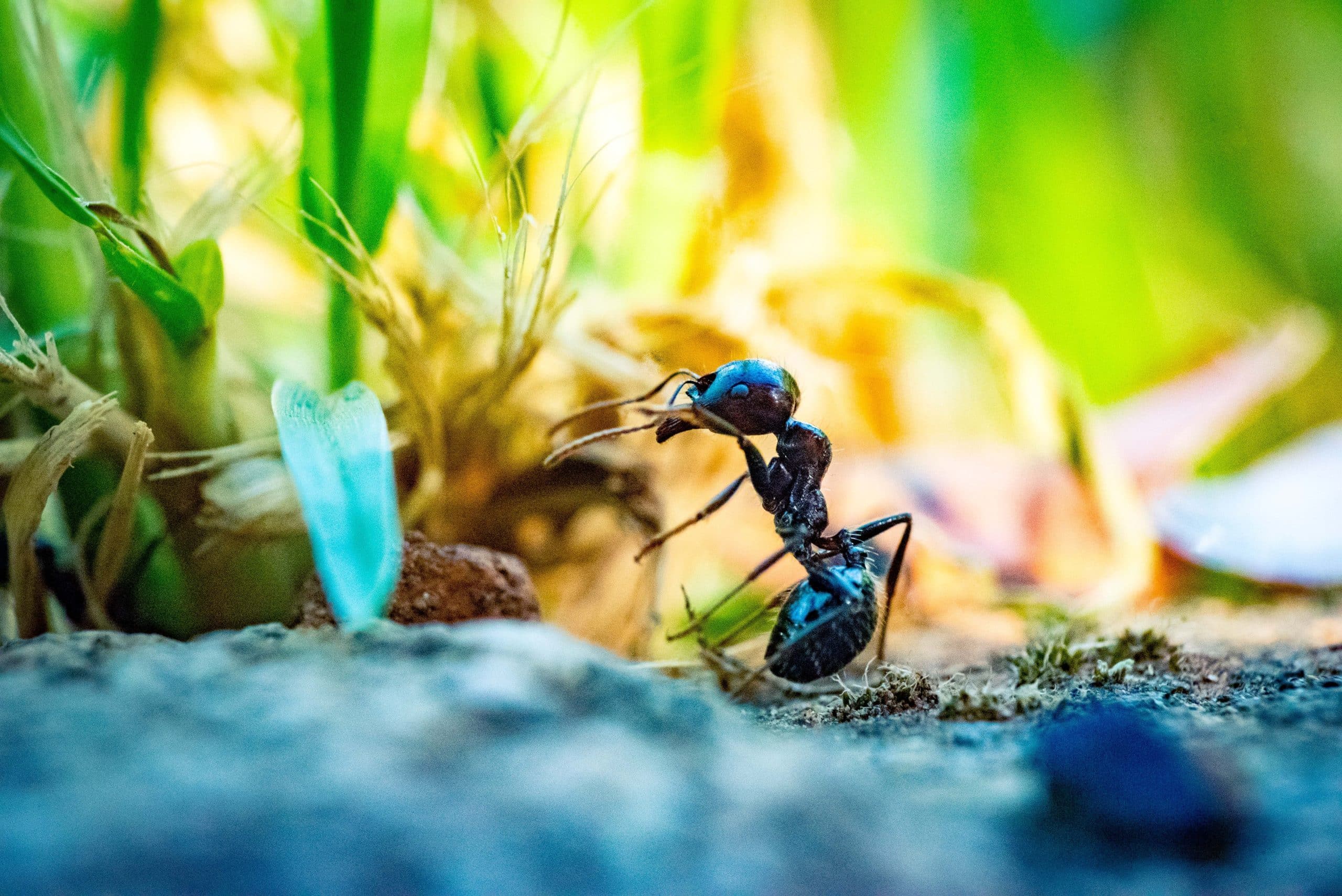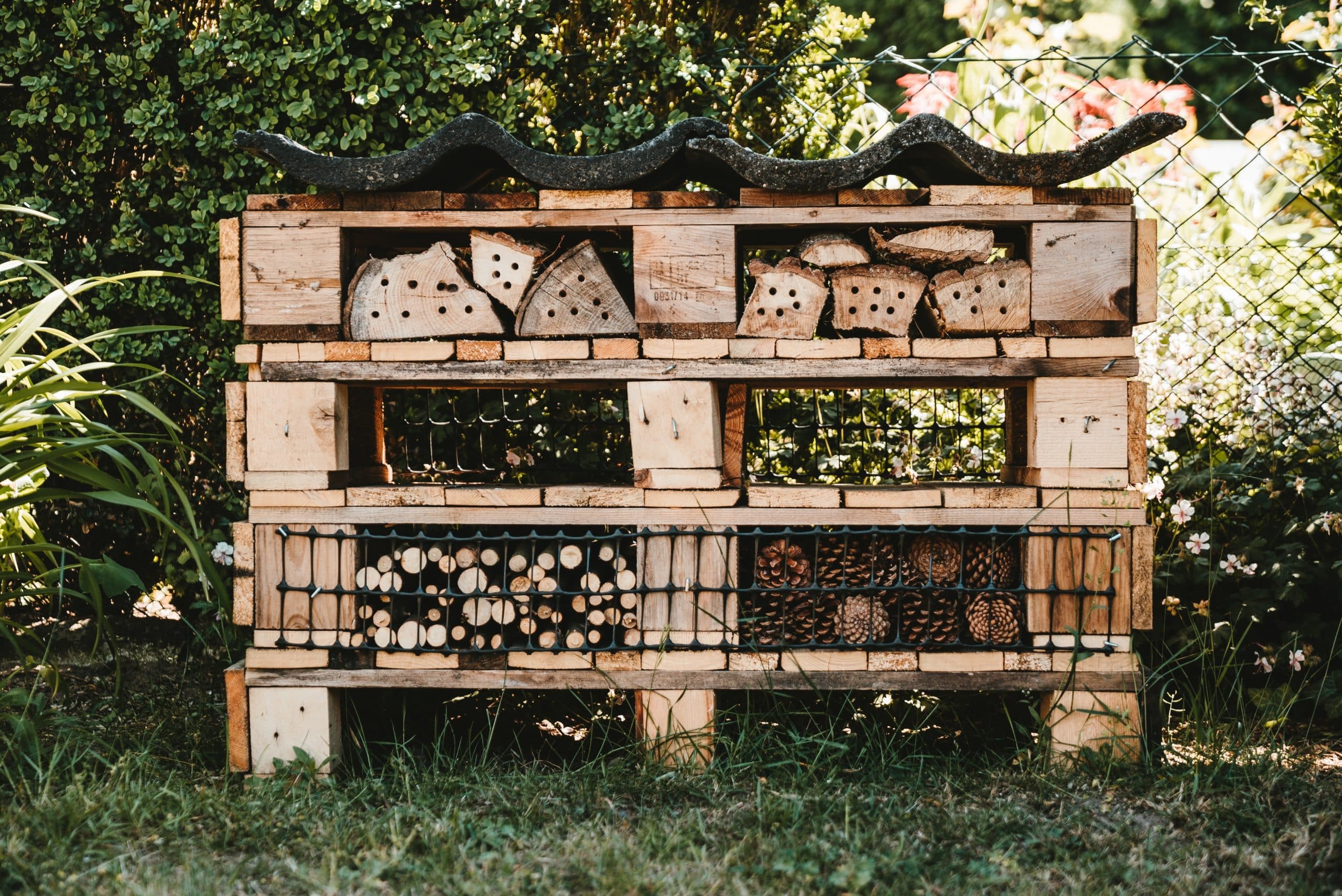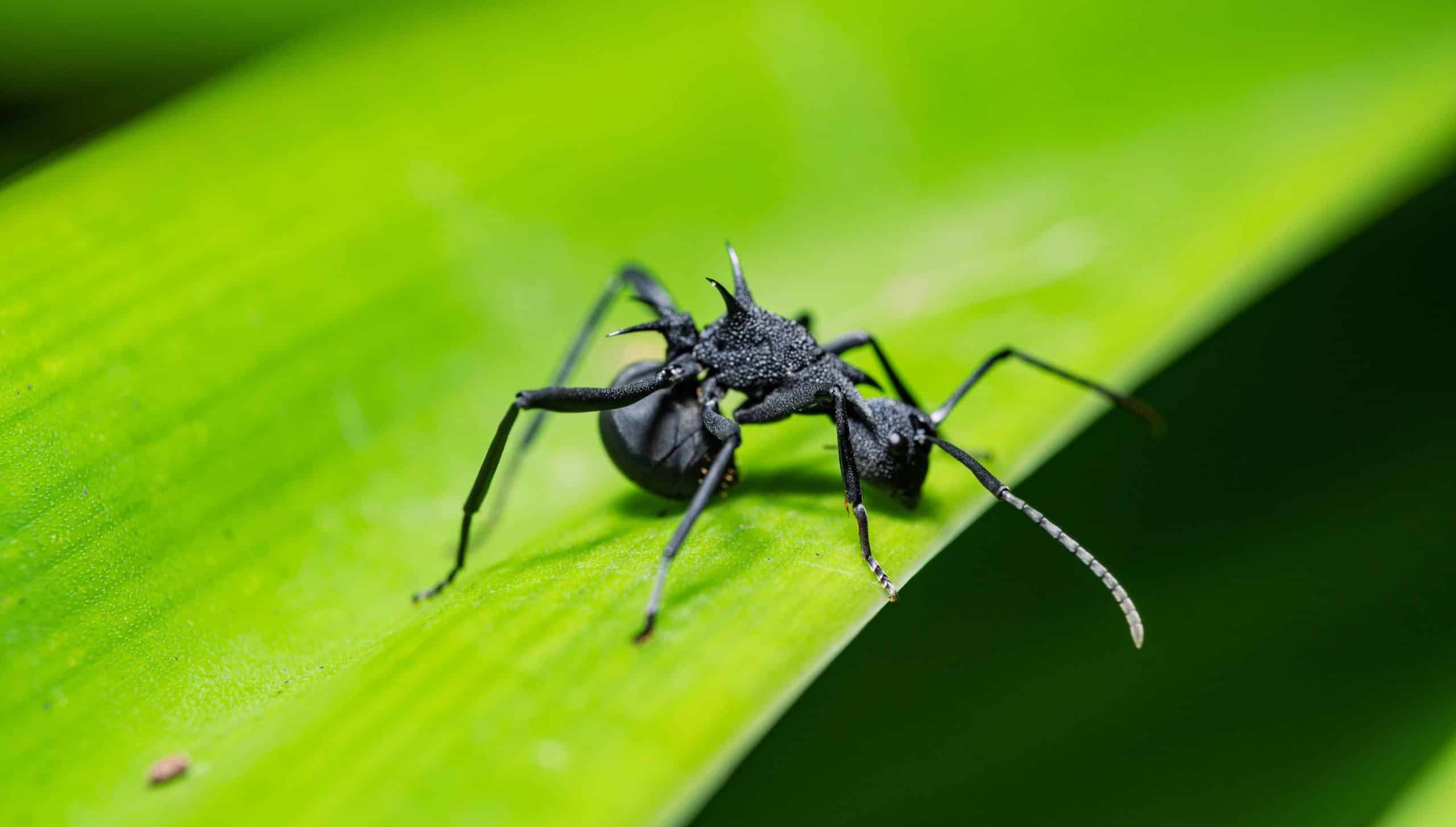Table of Contents
There are folks who think about the ant population in their garden as an unwanted guest at a party. But here’s the thing, garden ants might give you ant bites, but they ain’t all bad. They play their role in the garden ecosystem by acting as natural predators. They chow down on other bugs, help with decomposition, and do a bit of garden cleaning.
However, they have a knack for crawling on your beloved potted plants.Some may carry away seeds, while others large nets that disturb plant roots, disturbing plants’ stability. That’s why you should get rid of them. However, some methods like using chemicals can harm your plants. Although there are some that can exterminate them without harming your plants. So how do we accomplish the art of exterminating ants without destroying the plant ecosystem? Read on to learn more.
Getting to Know Your Tiny Pests: Common Species of Ants in Gardens
Recognizing the common species of ants frequenting your garden can help in dealing with them effectively.
Common Black Garden Ants
These are the widespread ant species found in gardens and other outdoor environments. They are easily recognizable, thanks to their characteristics. These ants are small to medium-sized, ranging from 2 to 5 millimeters. They are shiny black or dark brown in color.
They construct ant hills in lawns and gardens, preferring moist environments. Common black garden ants are known to accompany aphids. This is because the ants feed on the honeydew produced by the aphids. Although beneficial at times, they can be equally destructive.

Carpenter Ants
These are large ants, ranging from ¼ to ½ inch in size and are known for their ability to excavate wood and create galleries. Although they don’t eat wood, they tunnel them for nesting. They are brown, black, red, or a combination of the colors. The carpenter ants have strong mandibles and live in colonies.
The carpenter ants play a significant role in the ecosystem by aiding decomposition. These ants don’t damage healthy plants in the garden. However, they can protect aphids which can cause havoc in your garden.
Fire Ants
Fire ants are relatively small, ranging from 1/8 to ¼ inches. They are reddish-brown or reddish-black and use stingers as their defense mechanism. These ants are aggressive and will attack you if you disturb their nest.
On the upside, their nesting can create artificial aeration. Unfortunately, they build intricate underground nests that can disrupt soil. This disruption can damage the roots of your plants. Besides, the fire ants are opportunistic feeders and might eat seeds, affecting plant regeneration.
Acrobat Ants
These are also small ants, measuring 2 to 5 millimeters in length. They vary in color, ranging light brown to dark brown. When threatened, these ants raise their abdomen over their head, giving the appearance of an acrobat. They feed on insects, honeydew from aphids, and plant nectar.
Although the ants don’t destroy plants directly, they tend to aphids and other sap sucking insects which will damage your garden if left unchecked.
Yellow Meadow Ants
These are also small ant species, measuring 3 to 5 millimeters. They are light to dark yellow in color, with reddish-brown heads. These ants are social and live in extensive underground nests. The yellow meadow ants also have a mutualistic relationship with aphids, making them a potential danger to your garden.
Effective Strategies for Naturally Ridding Your Garden of Ants
When it comes to showing ants the door out of your garden, it’s crucial to remember that we’re dealing with post-season garden gladiators here. We’re, therefore, looking for natural pest control methods to get rid of ants in your garden, without hacking away at your rose bushes.
Using Borax and Sugar Combination
Combination of borax and sugar can be effective in eradicating ants. But before you go scattering this mix around your prized tulips, remember that borax can be rough on the green folks, so you gotta keep your ‘borax bomb’ away from them. Also, it might be best to keep Fido and little Timmy away from the treated areas, unless you fancy an after-dinner run to the ER!

Using Orange Peels and Orange Seed Spray
A homemade natural ant killer made from orange peels and seeds can be a game-changer for your ant-infested vegetable gardens. The strategy here is simple; you spray the solution on those areas in your garden which seem to be the happening ant-hotspots. Not only does the citrus scent deter ants, but the seed elements can be deadly to ants, pushing them to their microscopic limits and beyond. Watch as your critter opponents are repelled faster than a kid running from a dental appointment.
Leveraging Diatomaceous Earth
Food-grade diatomaceous earth is a natural insecticide made up of diatoms, an algae species with as much love for ants as that one cousin you dread at family reunions. Moisture can slow it down a bit, so make sure you sprinkle the powder on dry soil around the perimeter of your garden. The ant pests in your garden will take a beating while your peonies party on. Talk about a perfect control method, huh?
Using Nematodes
Beneficial nematodes can also be effective in getting rid of invasive ants.These invisible to the naked eye helpers are voracious ant-eaters that won’t harm the flora one bit. They are basically Godzilla to the ant-Tokyo, wreaking havoc in the bug world while harmlessly mingling with the green blokes. Safe around pets and kids, these garden superheroes can be your best bet for a buzzing-free spring!
Other Natural Remedies: From White Vinegar to Cayenne Pepper
White vinegar, when liberally poured over an ant nest, can exterminate ants without causing a ruckus in plant town. A few dashes of cayenne pepper can add flavor not just to your food, but also to your garden to keep ants at bay. So your garden stays green, the ants stay away, and you can finally sip your morning brew in peace!
Beyond Natural Ant Control: Ant-Killing Garden Sprays and Professional Assistance
While natural methods can do wonders for your garden, sometimes you gotta call in the pro guns. Whether it is using potent ant-killing garden sprays or reaching out to the ones schooled in bug annihilation, there’s no shame in asking for extra help. After all, a gardener has gotta do what a gardener does best- keep that grass green, come ants or high water!
When to Consider Using Ant Bait or Ant Killing Garden Spray
Pesky ants are attracted to food smidgens and sweetness, so a properly cleaned and maintained garden is a good preliminary defense. But when it turns into garden-World War III, these professional artillery might just save your leafy domain.

Deciphering When to Hire a Professional
Hiring a professional, particularly when the number of ant colonies becomes overwhelming, is just about roping in the cavalry for a showdown and ensuring a peaceful cohabitation with your plants.
How to Prevent Ants From Infesting Your Garden
Ants can be both beneficial and bothersome in a garden ecosystem. While they help aerate the soil and break down organic matter, they can also protect pests like aphids and scale insects. To strike a balance, here are five crucial tips to prevent ant infestations in your garden:
Maintain Cleanliness and Remove Food Sources
Ants are attracted to sugary, greasy, and protein-rich foods. Regularly clean up fallen fruits, crumbs, and food debris from your garden area. Empty and clean your compost bin frequently to avoid creating a tempting buffet for ants.
Keeping your garden clean and free from food scraps helps eliminate the primary reason ants invade. Removing potential food sources disrupts their foraging patterns and discourages their presence.
Seal Cracks and Entry Points
Ants are skilled at finding tiny cracks and gaps in fences, walls, and structures to access your garden. Seal these entry points using caulk or weather stripping to prevent ants from infiltrating your garden area.
By blocking off the pathways ants use to enter your garden, you reduce the likelihood of an infestation. Sealing cracks and gaps disrupts their movement and limits their ability to establish colonies.
Trim Plants and Create Barriers
Ants often use plants as bridges to access your garden. Trim branches that touch fences or buildings, creating a gap between plants and structures. Additionally, place physical barriers like sticky tape or diatomaceous earth around plant stems to deter crawling ants.
Pruning and implementing physical barriers act as obstacles for ants trying to traverse from plants to structures. These measures create an extra layer of defense against ant invasions.
Employ Natural Repellents
Certain scents and substances act as natural ant repellents. Sprinkle cinnamon, coffee grounds, or citrus peels around your garden to deter ants. Planting mint, tansy, or pennyroyal can also help keep ants at bay due to their strong scents.
Natural repellents offer a non-toxic way to discourage ants. These scents and plants interfere with ants’ ability to detect pheromone trails, disrupting their communication and navigation.
Use Ant-repelling Mulch
Opt for mulches that ants dislike, such as cedar chips or pine needles. Spread these mulches around plants and garden beds to create an environment that ants find unappealing. This can prevent ants from establishing colonies near your plants.
Frequently Asked Questions
1. How do you prevent ants from farming aphids on your plants?
Preventing ants from farming aphids on your plants involves disrupting the symbiotic relationship between the two pests.To do so, you will inspect your plants regularly for signs of aphid infestations. Prune and remove heavily infested plant parts, such as leaves or stems. This reduces the aphid population and removes their food source, discouraging ants from farming them.
You can also release natural predators of aphids, such as ladybugs or lacewings, into your garden. These insects feed on aphids and can help control their population. Ants are less likely to farm aphids when their prey is being consumed.
2. How can you effectively use hot/cold water for ant control?
Sometimes things need to heat up for ants to cool down. Using boiling water to get rid of ants in grass naturally isn’t rocket science. It’s like making a cup of tea but without the tea bag, and certainly without sipping it afterward. Take a boiling pot of water and pour it on the anthill. So long, ants, it was nice knowing you. Or let’s just say, this is a one-way ticket for the ants to remember their manners and respect the garden’s boundary.
3. Can liquid soap and oil help in managing the ant infestation?
Let me tell you something. When your garden’s under diplomatic siege by ants, there’s no need to wave the white flag. You gotta fight as dirty as it gets, even if it means going all soap and oil. Mist the six-legged invaders directly on the ants and watch the soap suffocate and the oil fend them off. And if you’re feeling a bit culinary, drop in a hint of canola oil. Mix these ingredients, and you’ve got yourself a homemade ant repeller. Just don’t get it mixed up with your cooking oil, huh?
4. What cultivation practices to adopt in warding off ant infestations?
Now if you’re looking for the secret to an ant-free garden, the answer lies in adopting proper cultivation practices. Attend to your garden like a diligent shepherd, my friend. Regular weeding and maintaining healthy soil are like a do-not-disturb sign for the unwanted visitors. Thinking of fertility as a recipe, watering is the magic ingredient that can make plants so robust that ants wouldn’t dare to mess with them. In other words, if you treat the garden right, there’s a good chance it’ll return the favor, keeping those pesky ants at bay.
Wrapping Up: Concluding Thoughts on Ant Control Without Harming Your Garden
That’s the meat and potatoes folks, the full scoop on tackling your ant hill problem without playing the villain to your plants and grass. Ain’t no doubt about it, you’ve got a few tricks up your sleeve now. It’s all about understanding those critters, spotting their ant trails early, and using strategies that don’t involve pouring boiling water everywhere, drowning your pretty peonies. Remember, make use of what mother nature provides – orange peels, diatomaceous earth – before you start thinking about bringing out the big guns.

I’m John, a “seasoned citizen” and an avid gardener. I live in Minnesota, where our weather and growing conditions can be harsh and challenging. Over the years, I have learned a thing or two about being successful in growing things. I have curated these tips, which I think are helpful for the beginning gardener and the seasoned experts. If you have feedback, let me know in the contact form.




